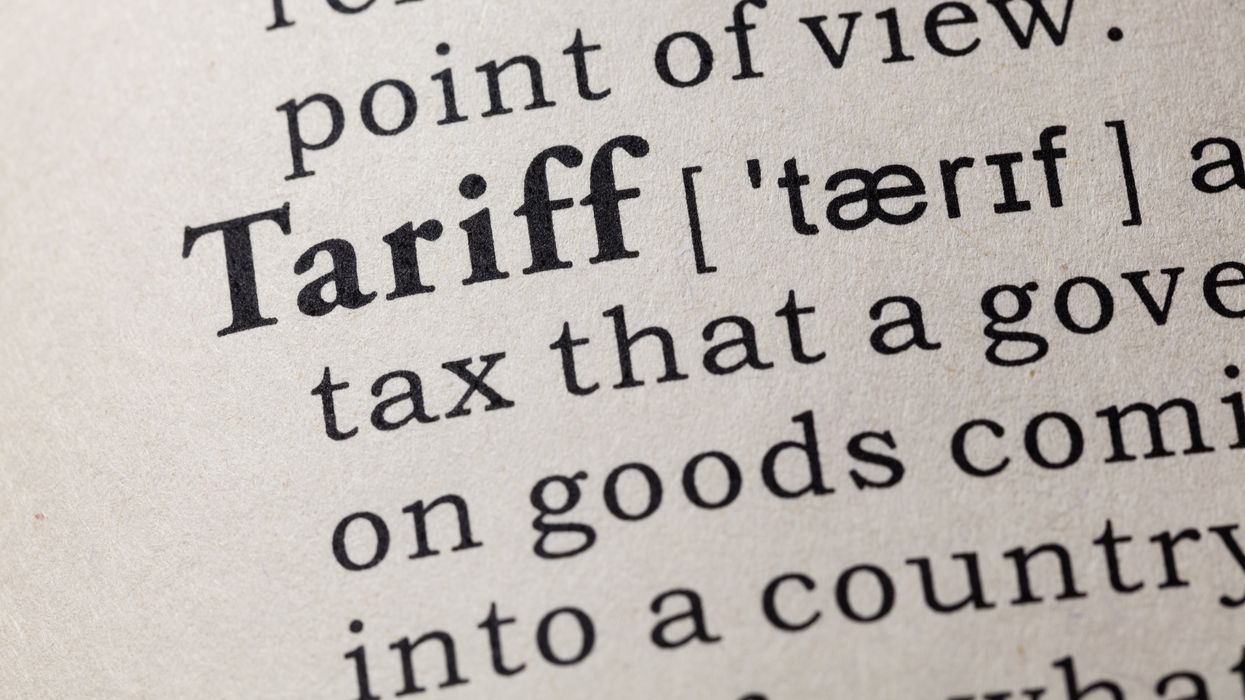Few would argue with the claim that President Trump’s tariff policy is chaotic.
In early April 2025, Trump announced sweeping tariffs on all U.S. trading partners, including a 10% blanket tariff and higher rates for specific countries like China (145%) and Canada (25%). Just a few days later, however, he rolled back many of these tariffs, citing the need for "flexibility".
Again this past weekend, Trump announced major changes—this time targeting the tech industry. Products like smartphones, laptops, hard drives, and semiconductors were suddenly exempted from the 125% tariffs he had imposed on Chinese imports just a week earlier. But these exemptions are temporary, the administration noted, hinting at future tariffs that target semiconductors and other electronics.
The uncertainty has rattled business leaders. Last week, JPMorgan Chase CEO Jamie Dimon warned that the lack of clarity could push the U.S. into a recession if trade deals aren't finalized swiftly. Walmart CEO Doug McMillon also highlighted the challenges of navigating the instability caused by these policies.
“ There’s no strategy here... zero, ” said Michael Cohen, a longtime Trump confidante-turned-critic who testified against him in his Manhattan hush money trial. “This isn’t about strategy, this is about brute force... and dictating demands.”
Cohen is not alone. Michael Strain, an economist with the American Enterprise Institute, believes that Trump has no coherent policy, saying, “People are trying to figure out what game of five-dimensional chess the president is playing and I don’t think there is one. I don’t think he knows what he’s doing and he’s making mistakes and making this up as he goes along.”
But while many worry about the chaos and suggest Trump has no idea what he is doing, could this actually be part of Trump’s “Art of the Deal”?
For years, many have described Trump’s negotiating style as chaotic and unpredictable and have suggested this is an intentional strategy to gain leverage in the tariff negotiations. This approach aligns with a negotiating approach known as "chaos negotiating," where unpredictability is used as a tool to unsettle adversaries as a way to push for favorable outcomes.
Proponents of this method believe it can be a calculated way to shift power dynamics. Critics argue it creates confusion and can backfire. In truth, it may be a bit of both. Many academics believe that negotiators are better off setting specific and clear goals when negotiating, although others believe that improvisation and even chaos are powerful methods as well. Thomas Green, a managing director at Citigroup Global Markets, believes that embracing chaos can be advantageous at the bargaining table. Admittedly, Green's approach challenges conventional wisdom; “I’ve learned to make chaos my friend in negotiations,” says Green. He played a pivotal role in negotiating the $350 billion settlement of lawsuits against major U.S. tobacco companies and used this approach as the team leveraged the unpredictability of the situation to outmaneuver the opposition. The negotiation demonstrated how chaos, when managed effectively, can be a powerful tool in negotiations.
Of course, no one can really know what Trump is thinking and perhaps that is his goal. David Bahnsen, the founder, managing partner, and chief investment officer of The Bahnsen Group suggested this, saying: “There is a certain chaotic dimension to this that lends itself to uncertainty.” Part of it is that President Trump likes that style. I do not think he has liked the last 4 or 5 days, and I think that's where this announcement is coming from. But investors that are trying to trade around this should be extremely careful unless they think they're inside the President's mind. I'd be very careful thinking you know what President Trump's going to do next, when I can assure you that he doesn't know what he's going to do next.”
So, what will become of this latest round of tariffs—and the complex web of negotiations they’re fueling? Will Trump’s unpredictability give him leverage or will it weaken the United States' credibility and negotiating power? The truth is, no one knows. The long-term implications for trust in U.S. trade policy and the stability of strategic partnerships remain uncertain.
However, Yogi Berra, a famous baseball player known for his witty and paradoxical sayings, might have summed it all up best for what the future holds for the U.S. tariff policy:
“It is very difficult to make predictions—especially about the future.”
When it comes to Trump’s tariff policy that certainly rings true.
David Nevins is co-publisher of The Fulcrum and co-founder and board chairman of the Bridge Alliance Education Fund.




















Trump & Hegseth gave Mark Kelly a huge 2028 gift